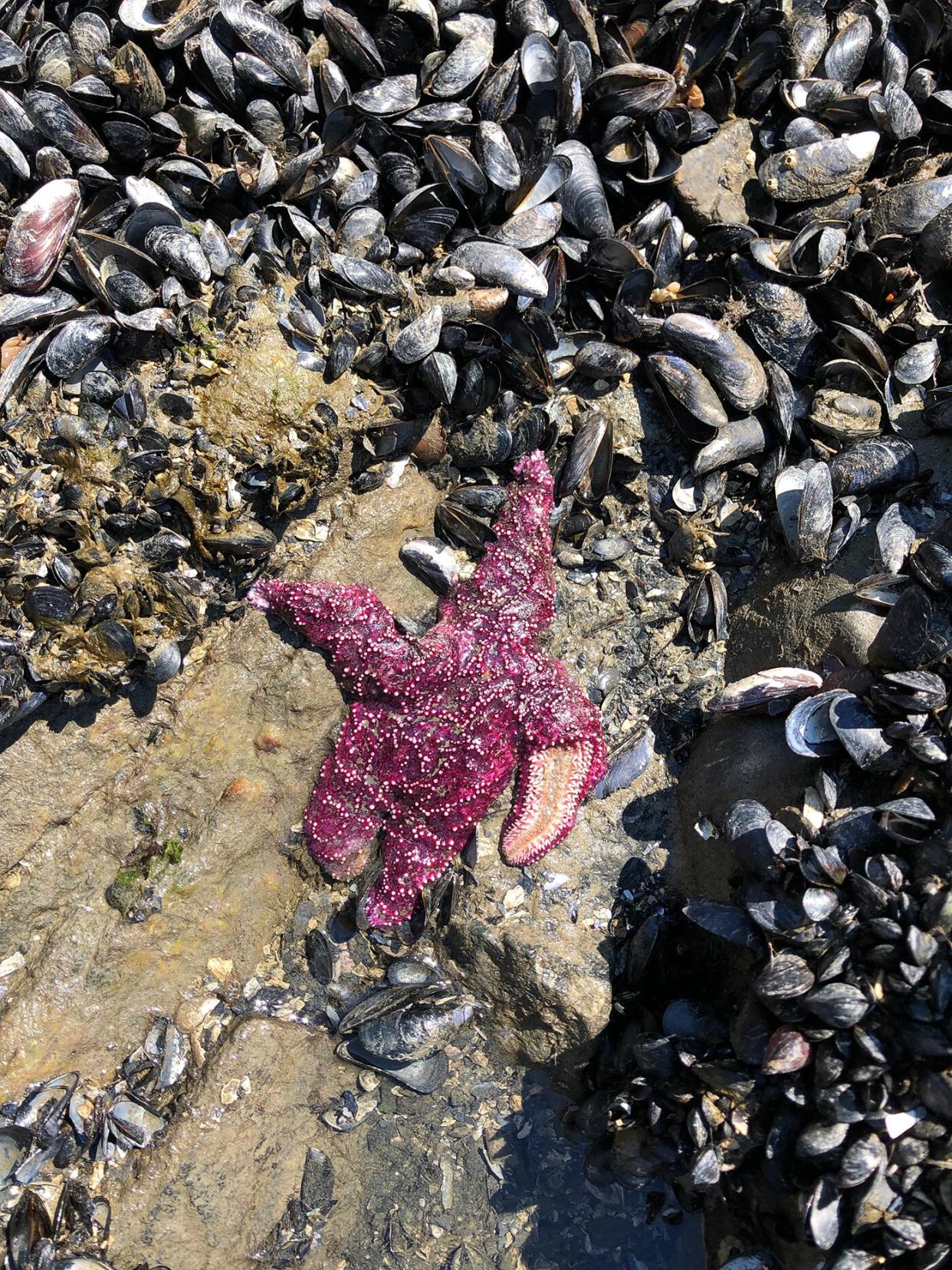Millions of Shellfish Boiled Alive Due to Pacific Northwest Heat Wave, Harming Ecosystem and Businesses

Christopher Harley
The ripple effect of climate change is now more apparent than ever in the Pacific Northwest.
Amid a recent heat wave that wreaked havoc in the area and parts of Canada, millions of shellfish were cooked alive off the coast of Vancouver, British Columbia.
Christopher Harley, a marine biologist at the University of British Columbia, witnessed the mass death firsthand.
"My first worry about the heatwave was how hot it would get in my house, which isn't air conditioned. Answer: Hot enough to kill my son's pet fish," he tells PEOPLE. "I also expected that the heat would impact life on the sea shore, so I walked down to my local beach on the second day of the heat wave. I could smell [the odor of dead fish] before I even arrived, which was a sign that things were already dead and rotting."
It got worse each day of the heat wave, which in some places surpassed 120 degrees Fahrenheit.
"Untold millions of mussels had already died in the park, and their empty shells crunched underfoot everywhere we walked. I've seen other die-offs during hot weather, but never anything this extreme," he tells PEOPLE. "The extent of the die-off is staggering. Mussels, clams, oysters, snails, barnacles, crabs, sea stars — the list goes on ... The total number of animals that died will number in the billions. The scientist in me sees many things we can learn from this, but the nature lover in me is a little overwhelmed."
RELATED: What to Know About Upcoming Heat Waves and How to Protect Yourself as Earth Gets Hotter
The effects of marine life death in these numbers can have many effects, from water quality issues (mussels and clams can help filter seawater) to food chain issues for migratory birds. Harley has hope that these populations can recover, but adds, "The big question is what happens when this type of heatwave happens often enough that species don't have time to recover between die-offs. I fear that day is coming sooner than we might think."
Also affected is the local fishing and seafood industry, as the typical beach oyster production cycle takes two to three years. "If you lose 80 percent of your oysters across all sizes, then you are really out of business for two or three years," Jim Russell, executive director of the British Columbia Shellfish Growers Association, told The Washington Post.
Hama Hama Oysters revealed the carnage left on their clam beds in Hood Canal, posting photos to Instagram. They noted that it was "too soon to say how the oysters will fare," but the northern beaches "are doing fine and the water is still nice and cold."
"What to do???" Hama Hama concluded in their caption. "Please vote for politicians who are brave enough to address climate change."
RELATED VIDEO: Scientist Rallies Fellow Moms to Save the Planet: The 'Most Important Thing' Is Our Kids' Future
The fifth-generation family business recently gave a more positive update. "Oysters in general seem to be happy, although sand dollars, moonsnails, and lots of other critters died en masse on our beach," Hama Hama wrote. "We lost a lot of clams, but we had a lot to begin with! Let's just not make this a regular thing. Thanks for all the positive vibes."
According to a recent study in the Proceedings of the National Academy of Sciences, if global greenhouse gas emissions continue at the current rate, the world will lose 17% of all marine life by the end of the century.
The Pacific Northwest heat wave also claimed a number of human lives, with more than 100 heat-related deaths reported in British Columbia as of late June. The death toll has since risen to 719, with the majority of those dead being elderly and living alone.
Harley echoes Hama Hama and many others in calling for people to demand change both small-scale and globally.
"The effects of the heat dome — dead shellfish, cherries cooked on the trees, wildfires, people dying - are a reminder of how the world is changing," he tells PEOPLE. "Climate change is a big, scary issue that is hard to address. .... We can make small changes to reduce our greenhouse gas emissions too, and when we do, we'll realize that it wasn't as hard as we thought. Governments can and should help make this easier for us, but they'll only do it if we tell them to."

